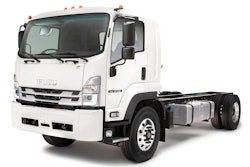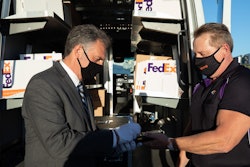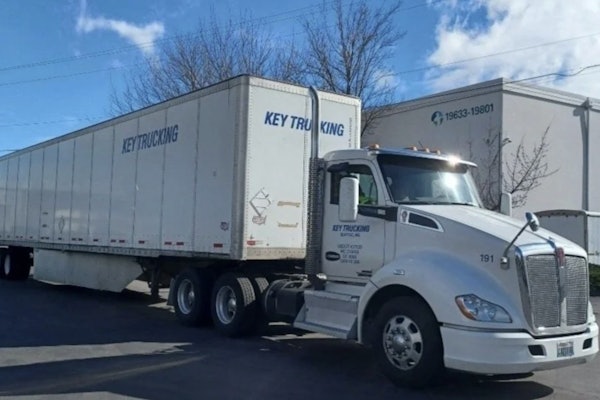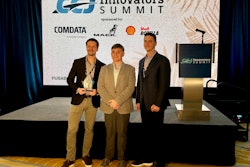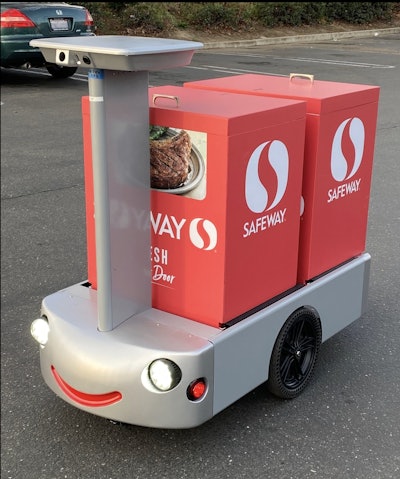
Being on the leading edge of technology puts a company in a precarious position: Do you invest (sometimes) millions of dollars and risk face plant, or do you throw caution to the wind and innovate for the sake of innovation?
The second-largest supermarket chain in North America, Albertsons Companies is taking the second approach, supplementing its more than 1,400 trucks with a ... oversized Segway? Or is it a semi-autonomous smiling golf cart?
Currently being tested with Safeway associates in Northern California neighborhoods, the Safeway cart – regardless of how you categorize it – is a fully electric final-mile delivery platform. It's equipped with a camera and a speaker, and is guided through neighborhoods by remote operators.
The logistics involved came via partnership with Tortoise, an automated logistics company focused on last-mile solutions. Founded two years ago in Mountain View, California, Tortoise automates logistics for light electric vehicles like delivery bots and shared scooters.
Albertsons Companies is a consumer goods retailing behemoth, operating stores across 34 states and the District of Columbia under 20 well-known banners including Albertsons, Safeway, Vons, Jewel-Osco, Shaw's, Acme, Tom Thumb, Randalls, United Supermarkets, Pavilions, Star Market, Haggen and Carrs. Chris Rupp, executive vice president and chief customer and digital officer, noted the company is "obsessed" with innovative technologies that help make shopping experiences easier and more convenient.
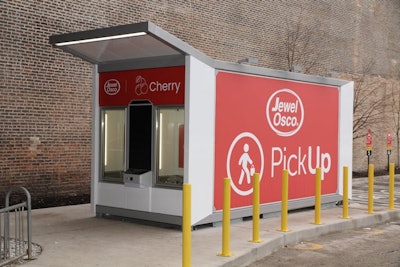 Albertson Companies in January deployed a temperature-controlled automated pickup kiosk at one of its Jewel-Osco stores in Chicago.
Albertson Companies in January deployed a temperature-controlled automated pickup kiosk at one of its Jewel-Osco stores in Chicago.
It already offers in-house delivery and Drive Up & Go options through its websites and apps and has partnerships with third-party operators to provide fast delivery options.
At an average speed of 3 mph, the Tortise-powered Safeway cart is anything but ... well ... a fast delivery option.
But it fits the criteria of enhancing the customer's experience by hauling up to 120 pounds of groceries, which are housed in in four lockable containers and transported to customers' homes for contactless delivery. When the cart arrives at a home, the customer receives a text to come outside and pick up their groceries.
In the early stages of testing, a store associate will escort the cart as part of the company's pilot process.
The pandemic has forced the hand of companies like Albertsons that, generally speaking, are a high-touchpoint business, and if the coronavirus has show us anything it's that contactless delivery is a desirable layer of e-commerce.
It's also shown us certain house hold items can be combined to make disinfectant, and in an emergency there are viable substitutions for toilet paper – all of which can be obtained at your local grocer and may one day be delivered to your home by a low-speed, partially autonomous, electric shopping cart ... err ... delivery bot.


